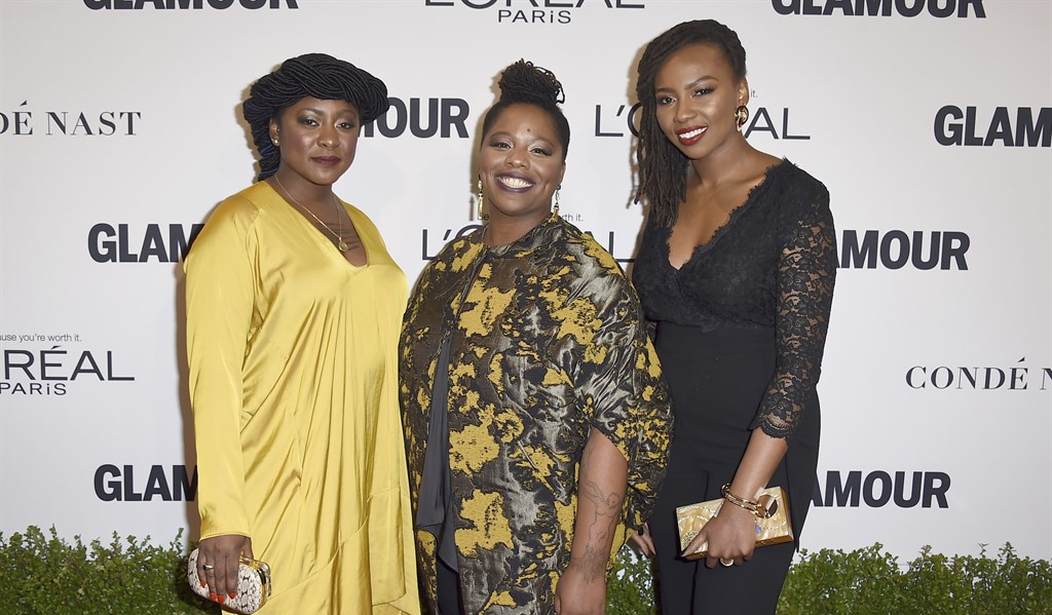On Thursday, Facebook decided to censor a New York Post article about Black Lives Matter co-founder, Patrisse Cullors, a "trained Marxist" who has come under heavy criticism for the hypocrisy in her buying a $1.4 million home in a largely white neighborhood. The piece in question, by Isabel Vincent, from April 10, reported that "Marxist BLM leader buys $1.4 million home in ritzy LA enclave."
Facebook used the oft-repeated reasoning of "violating community standards." Specifically, "This content was removed for violating our privacy and personal information policy."
An Inquire piece from Shant Mesrobian and Zaid Jilani confirms the ban is worldwide.
Vincent's piece makes mention of the neighborhood, with pictures, but cites a celebrity real estate blog, and does not list addresses.
In an editorial, the New York Post is adamant they did not share Cullors' personal information:
We reached out to Khan-Cullors for comment before publication; she didn’t respond. After it was posted, her organization put out a statement saying yes, she used to take a salary from BLM but doesn’t anymore, and the money she used to buy property came from her private income for book and development deals. Take the organization’s word for it. We added the response in full to our online article post-publication.
Then she accused us of being “abusive” and putting her at risk.
Our article features some pictures of the properties she bought, but includes no addresses, in fact doesn’t even say the city in some cases. Our reporter compiled the information from public records.
Khan-Cullors’ lawyers apparently got a more sympathetic ear at Facebook, however, and five days after the article was published, it suddenly decided that it clashed with its “community standards.” “This content was removed for violating our privacy and personal information policy,” Facebook writes.
Recommended
The editorial also highlighted the sheer hypocrisy and double standard:
This decision is so arbitrary as to be laughable. Does Facebook know how many newspapers, magazines and Web sites highlight the real estate purchases of the rich and famous? The next time People magazine covers Kim Kardashian’s latest mansion purchase, will it violate any community standards? How about running a picture of the resort Ted Cruz is staying at?
Rachel Bovard highlights this concern further in her piece for the New York Post, "Progressive figures work hand-in-hand with social media to silence opponents" from Friday afternoon:
Likewise, Facebook made no effort to reduce circulation of a stories containing the illegally leaked details of President Trump’s tax returns, or secretly recorded conversations with Melania Trump.
Information about celebrity home purchases, including sale prices and photos, circulate daily. So, too, do images of revenge pornography, child abuse, and sex trafficking – which Facebook claims before Congress and in court it should not be held responsible.
That’s because Facebook’s content policies aren’t really concerned with privacy, or with protecting personal information. They’re about protecting the politically and culturally powerful by suppressing criticism, punishing dissent, and crushing counter-narratives.
The New York Post wasn't the only one who found the explanation faulty.
Facebook justifying blackholing a news article by saying it's concerned about the unwanted spread of people's personal information is ... something. https://t.co/i8fJ3brfsi
— Yair Rosenberg (@Yair_Rosenberg) April 16, 2021
The New York Post has also had content censored when it comes to publishing a column that the Wuhan Coronavirus could have leaked from a virology lab there, and about the laptop Hunter Biden left at a Delaware computer repair shop. Twitter CEO, Jack Dorsey, admitted before a Congressional committee that it was "a mistake," in remarks that conveniently came after President Joe Biden had already won the election. He called it "a total mistake," before another committee when President Biden had already taken office.
According to a poll commissioned by the Media Research Center, 9.4 percent of Biden voters would have changed their vote had they been fully aware of the Hunter Biden scandals.
In other words, President Trump could very likely have been re-elected if not for censorship from the mainstream media.
























Join the conversation as a VIP Member